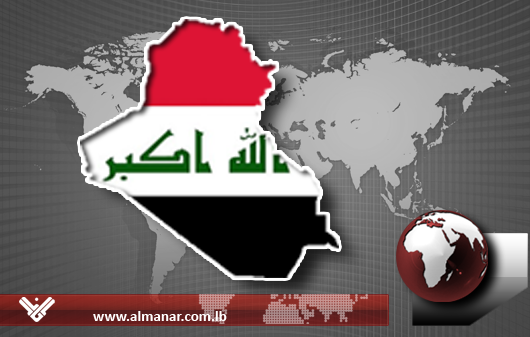While Maliki had been expected to name his entire cabinet except for three sensitive posts linked to national security, politicians said that as many as half of the ministerial positions were still undecided.
The announcement of the Iraqi cabinet was put in doubt on Monday, as political parties squabbled over posts, with a Saturday deadline looms for a new government to be in place.
While Maliki had been expected to name his entire cabinet except for three sensitive posts linked to national security, politicians said that as many as half of the ministerial positions were still undecided.
"The problem is that many political blocs are all asking for the same post at the same time. Because of this, there is still no agreement," said Khaled al-Assadi, an MP in Maliki's coalition who is seen as close to the premier.
"I can say that that only half the ministries have been decided so far," he added. "The three security ministries will not be presented today, and they may not present the deputy prime ministers either."
The time of the announcement was in doubt, with an advisor to Maliki and a government spokesman insisting it would be Monday afternoon, while two lawmakers said the announcement would be delayed until Wednesday.
"Prime Minister Nuri al-Maliki will announce the cabinet this afternoon, as planned," Maliki advisor Ali Moussawi said.
Government spokesman Ali al-Dabbagh also said Maliki would make the long-awaited announcement on Monday. "The government will be announced this afternoon," he told reporters.
But Hanaa Turki, an MP from Maliki's National Alliance, and Mahmud Othman, an independent Kurdish MP, earlier said the announcement would be delayed until Wednesday, amid continued squabbling over posts.
Othman also said on Monday morning that the pan-Kurdish alliance, which holds around 50 seats in the 325-member parliament, had not yet decided on who its ministers would be.
Earlier, politicians had said any cabinet proposed on Monday would not include the naming of new ministers of interior, defense and national security, meaning Maliki would take interim control of Iraq's security forces.
Maliki's State of Law coalition won 89 seats in the March 7 elections, two fewer than the Iraqiya bloc of ex-premier Iyad Allawi. But neither won enough for a parliamentary majority, resulting in an impasse that is still being resolved.
A power-sharing deal last month finally broke the deadlock, with Maliki being named prime minister-designate on November 25 and given 30 days to name his government.
While Maliki had been expected to name his entire cabinet except for three sensitive posts linked to national security, politicians said that as many as half of the ministerial positions were still undecided.
"The problem is that many political blocs are all asking for the same post at the same time. Because of this, there is still no agreement," said Khaled al-Assadi, an MP in Maliki's coalition who is seen as close to the premier.
"I can say that that only half the ministries have been decided so far," he added. "The three security ministries will not be presented today, and they may not present the deputy prime ministers either."
The time of the announcement was in doubt, with an advisor to Maliki and a government spokesman insisting it would be Monday afternoon, while two lawmakers said the announcement would be delayed until Wednesday.
"Prime Minister Nuri al-Maliki will announce the cabinet this afternoon, as planned," Maliki advisor Ali Moussawi said.
Government spokesman Ali al-Dabbagh also said Maliki would make the long-awaited announcement on Monday. "The government will be announced this afternoon," he told reporters.
But Hanaa Turki, an MP from Maliki's National Alliance, and Mahmud Othman, an independent Kurdish MP, earlier said the announcement would be delayed until Wednesday, amid continued squabbling over posts.
Othman also said on Monday morning that the pan-Kurdish alliance, which holds around 50 seats in the 325-member parliament, had not yet decided on who its ministers would be.
Earlier, politicians had said any cabinet proposed on Monday would not include the naming of new ministers of interior, defense and national security, meaning Maliki would take interim control of Iraq's security forces.
Maliki's State of Law coalition won 89 seats in the March 7 elections, two fewer than the Iraqiya bloc of ex-premier Iyad Allawi. But neither won enough for a parliamentary majority, resulting in an impasse that is still being resolved.
A power-sharing deal last month finally broke the deadlock, with Maliki being named prime minister-designate on November 25 and given 30 days to name his government.
